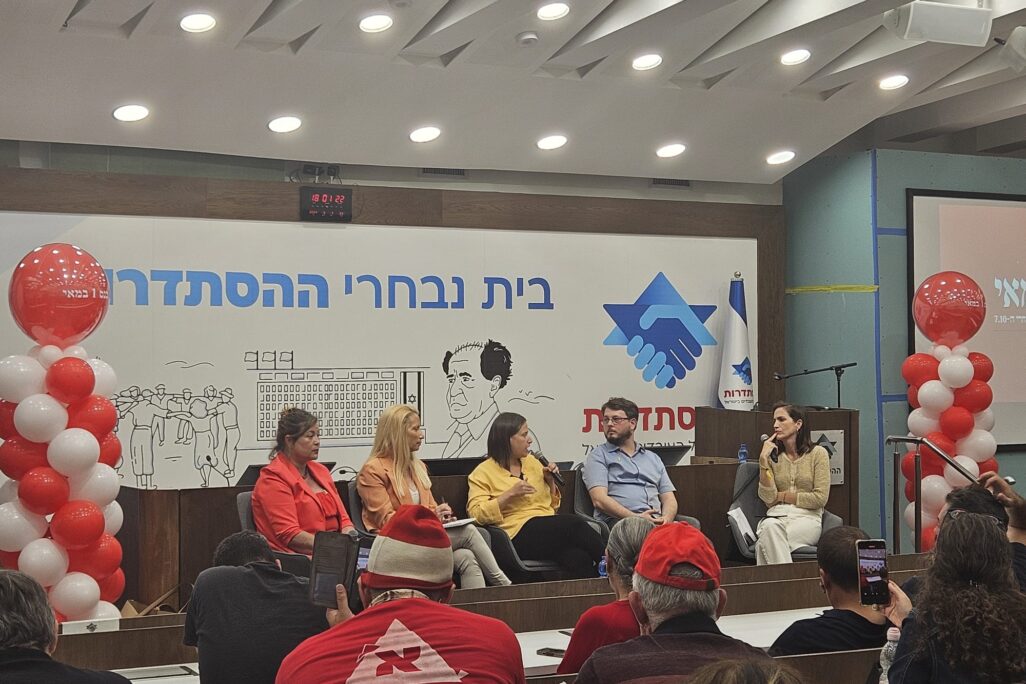
Workers and union organizers from cities as well as rural areas gathered at the Histadrut House on May 1 for a May Day conference dedicated to the restoration of social services and the welfare state in Israel.
“This country is becoming rich with poor people,” said newly elected Secretary General of the Kibbutz Movement Lior Simcha, addressing the participants. “The kibbutz was founded on sharing the means of production and solidarity, so I stand for the essential place of the kibbutz movement. I hope that Oct. 7 taught us the importance of settling the border and of agriculture. I do see hope in the loving welcome of the residents of Kiryat Gat to Kibbutz Nir Oz. Maybe this is the beginning of a better future.”
Concern about the socioeconomic trends in Israel, along with the desire for deep social and political change, was shared by many of the speakers. In this spirit, Inbal Harmoni, president of the Israel Social Workers’ Union, explained the need she sees for change in Israel’s social welfare:
“The correct approach is that all citizens, and before that, all people, deserve basic rights,” she said. “As we used to say in the demonstrations, ‘we want justice, we don’t want charity.’”
Member of Knesset Naama Lazimi from the Labor party reinforced Harmoni’s words. “We must have social rights be universal and not sectoral. We must change the economic concept of the state of Israel,” she said. “For example, increasing the deficit for the mental health system is an investment and not a debt.”
Highlights From the Panels
This May Day conference was the second of its kind held at the Histadrut House. It included two panels: one on the topic of restoring social services after the Oct. 7 attacks and the other on rebuilding the welfare state. Meretz Member of Knesset Ilan Gilon, who died two years ago on May 1, was also commemorated at the conference.
“The values of May Day are equality, justice and freedom,” Histadrut Deputy Chairman Tomer Reznik said at the conference. “From our point of view, these are not conflicting values. And these are not only the values of May Day, but also the Declaration of Independence and the prophets of Israel. According to our worldview, the division should not be between identities—Arab, Haredi, LGBT, etc., but according to status: employees, self-employed. If the division changes, we can build a better country.”
Chairman of the Histadrut’s Strategy and Innovation Division Itamar Avitan shared that his success in creating a collective agreement for the cellular company Pelephone convinced him of the Histadrut’s ability to make real change in Israeli society. “You can complain about the lack of social workers, about the attempt to dismantle the state education system, and more, and you can decide to fix it,” he said.
Sigal Pail, a representative for the teachers’ union, also spoke at the conference. He commented on the active struggle for a salary agreement for high school teachers. “We are fighting for the image of the education system in Israel,” he said.
Avitan explained that the participation of the Teachers' Union in the conference was not accidental. “The goal of our branch is to see how a workers’ union can fit into the changing labor market. One of the decisions we made is to strengthen the relationship with other workers’ unions.”






